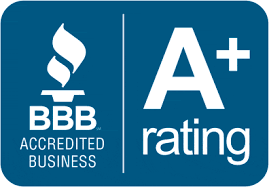Disabled VA Claims

Who We Are?
"A part of my practice I love is assisting Veterans with the VA claims process. I spent over 30 years as an Infantry Officer and cherish my time with those who write that check to Uncle Sam: "Up to and including my life." Only around one in twenty Americans are veterans today, so veterans should feel proud of their service, whether, for a few years or a few decades, America is safe because of you. I enjoy being able to help veterans through the compensation claims process of the Veterans Administration."
Attorney - Bill Connor
1.
Filing VA compensation claims
The first step for VA claims officers are making the "service connection" for the injury. This means that they must find proof of the personal injury and proof that the personal injury occurred on active duty (including active duty for training or reserve component drill periods). Note that the VA will receive database information about the veteran's service but may not have evidence of specific time periods on active duty.
2.
Claim Denial and Supplemental Claims
If a claim is denied or given a substandard rating for the level of injury, the veteran should consider immediately filing a VA Form 20-0995, Decision Review Request: Supplemental Claim. The veteran has only one year to make this claim.
If successful in overturning a rejection or receiving a higher rating, the claim will backdate to the filing of the original claim (which backdates to discharge if the initial claim is made within one year). The service member must provide new evidence not previously considered in this claim process. This is the time to scour records and documentation and potential witnesses who can provide statements to provide new information.
3.
Higher-Level Reviews
The Higher-Level Review permits a Veteran to request a de novo, which is Latin for "from the new," and essentially means the veteran's claim will receive a new look by a more experienced Claims Adjudicator.
To request a Higher-Level Review, you will have to file "VA Form 20-0996," which is a "Decision Review Request: Higher-Level Review." This form will request personally-identifying information and a list of issues that need to be reviewed.
This form should be done with the assistance of an experienced attorney since a lawyer not only knows what evidence Claims Examiners need to see, but attorneys also know how to present disability claims in effective ways. Ergo, you have a greater chance of acquiring the financial and medical benefits you need and deserve.
From my three decades of Army Infantry service in peace and war and now a disabled veteran, I have unique experiences/insights to help with VA compensation claims as your attorney. I provide assistance with filing VA compensation claims, through assistance with supplemental claims, through assistance with higher-level reviews, through appeals of denied claims. If you need solely a consultation to understand the VA compensation system, we can schedule your time with me. Alternatively, I can help draft claims and represent on appeals.
Bill Connor
What We Do
Post-Traumatic Stress Disorder (PTSD)
The rules surrounding VA disability benefits for individuals who have PTSD (Post-Traumatic Stress Disorder) are so complex that the VA themselves can make a mistake. Sadly, this can result in veterans being denied benefits. Having an experienced VA disability lawyer can help you with your claim and get the results you deserve.
Traumatic Brain Injury (TBI)
Veterans that have had a traumatic brain injury while on active duty or during combat can receive disability benefits. In some cases, a veteran that has suffered TBI as a civilian may also qualify for disability compensation. An example of this would be if a veteran suffers a brain injury due to a fall or vehicle-related incident while on active duty.
Under these circumstances, a veteran may potentially still qualify for the same service-connected disability compensation as a soldier that suffered an injury that transpired during combat.
Back Injury
If veterans can prove service connection to a back injury, they may be qualified to receive VA disability benefits. One of the first things to do when seeking proof that back issues are related to military service is to look within the service records. If a veteran injured their back while on active duty, there may be documentation of that injury.
Searching through the service records for something affiliated with an in-service injury is crucial. It can be in the form of a notation from a supervisor dismissing the veteran from their duties, a statement by the veteran or fellow servicemembers explaining the injury, or something similar that is connected to the injury.
Sleep Disorders
The two most common sleep disorders among veterans are obstructive sleep apnea and insomnia. In many cases, these sleep disorders begin during a veteran's time in the service, but they may not have realized they had a sleep disorder at the time. In cases such as these, finding the evidence needed to connect a sleep disorder to their time in the service can be challenging.
Bill Connor is experienced and understands the requirements of VA regulations and law. If the VA has denied your benefits claim, contact us today at The Bill Connor Law Firm and let us review your case.
Meet Our Team

Attorney
Bill Connor

Senior Paralegal
Douglas Thomas

A part of my practice I love is assisting Veterans with the VA claims process. I spent over 30 years...
Read more
After serving in the Army for over 30 years, about half active duty and half reserve component, and multiple deployments,...
Read more




